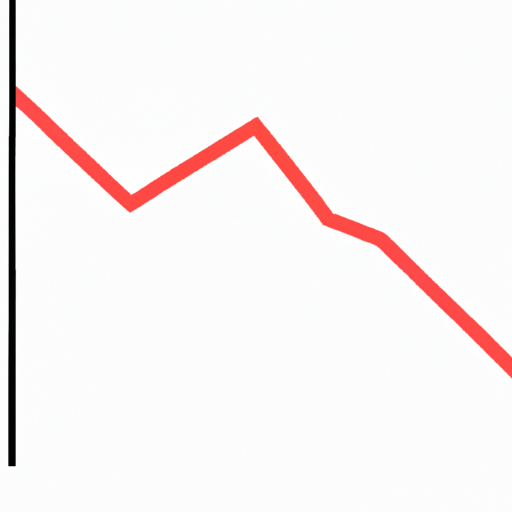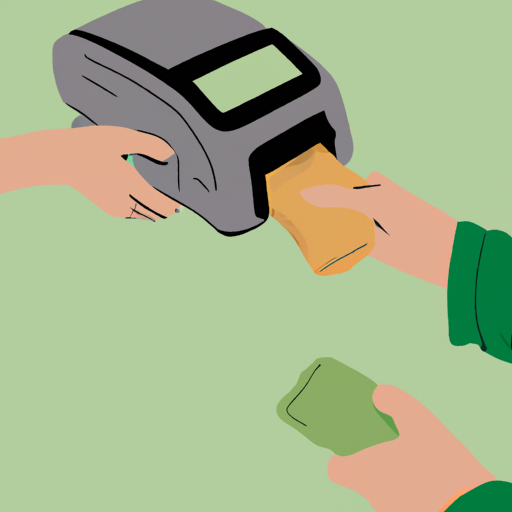How Your Credit Score is Calculated

Your credit score is an important factor to consider when it comes to financing and leveraging credit. It is important to understand how it works and how to improve it. In this post, we will discuss how your credit score is calculated and how you can improve it.
Your credit score is calculated by the three major credit bureaus, TransUnion, Experian, and Equifax. Each bureau uses its own formula to calculate your credit score. Generally, the formula considers your payment history, the amount of debt that you have, the length of your credit history, and the types of credit you have.
Payment history is the most important factor in calculating your credit score. Lenders want to know that you can make payments on time, so a history of on-time payments will help your credit score. The amount of debt that you have also plays a significant role in your credit score. If you have a large amount of debt, it could cause your credit score to go down. Additionally, the length of your credit history is also taken into consideration when calculating your credit score. The longer your credit history, the better the score. Lastly, the types of credit you have can also affect your credit score. It is important to diversify your credit types, such as having a mix of credit cards, auto loans, and other types of loans.
Now that you know how your credit score is calculated, you can begin to make changes to improve it. The first step is to ensure that you are making all of your payments on time. It is also important to reduce your debt. You can do this by budgeting, making extra payments, and consolidating your debt. Additionally, you should aim to keep the amount of credit that you are using low. Lastly, make sure that you have a mix of different types of credit.
Your credit score is an important factor in determining your financial future. It is important to understand how it is calculated and to take the necessary steps to improve it. By making on-time payments, reducing your debt, and diversifying your credit, you can significantly improve your credit score. With these tips, you can take steps to improve your credit score and reach your financial goals.
What is a Credit Score?

A credit score is a three-digit number that reflects how responsible you are when it comes to managing your finances. It is a numerical representation of your creditworthiness and is used by lenders to decide how much to lend you and how much interest you’ll pay for a loan. Your credit score is an important financial metric and can have a major impact on your ability to access credit.
So, what exactly is a credit score? A credit score is a number that ranges from 300 to 850, with a higher score indicating that you are a responsible borrower. It is calculated based on the information in your credit report, which is a record of your credit history. This report is compiled by the three major credit bureaus: Experian, Equifax, and TransUnion. The information in your credit report is used to calculate your credit score, which is updated at least once a month.
Your credit score is determined by five key factors: payment history, credit utilization, credit age, account mix, and inquiries. Payment history includes the number of payments you make on time and how often you make late payments. Credit utilization is the amount of credit you’re using compared to the amount of credit available to you. Credit age is the length of time you’ve been using credit. Account mix is the variety of accounts you have, such as credit cards, installment loans, and mortgages. Inquiries are the number of times you have applied for credit in the past year.
It’s important to note that your credit score is not based on your income, assets, or job. It’s solely based on your credit history. Your credit score is not static, and it can change over time. It is affected by your financial habits, so it’s important to keep track of it and make sure that you’re taking steps to improve it.
Understanding and improving your credit score is an important part of financial literacy and can help you achieve your financial goals. It can open the door to new opportunities, such as lower interest rates and better loan terms. By taking the time to understand your credit score and taking steps to improve it, you can build a stronger financial future for yourself.
Understanding Your Credit Report

Your credit report is an important document that helps lenders determine your creditworthiness. It contains your personal financial history, including payment histories, balances, and any information that could influence a lender’s decision. Understanding your credit report is essential to improving your credit score.
First, you should make sure that the information on your credit report is accurate. Reviewing your credit report can help you identify any errors or discrepancies that need to be corrected. If you find any errors, contact the credit reporting agencies right away to get them fixed.
Second, you need to create a budget and make a plan to pay your bills on time. Late payments can have a negative impact on your credit score, so it’s essential to make sure you’re making all of your payments on time. Setting up automatic payments can help you stay organized and ensure that you don’t miss any payments.
Third, you should consider using a credit-builder loan. These are typically small loans that are designed to help you build up your credit score. With a credit-builder loan, you make small monthly payments that are reported to the credit bureaus and help to improve your credit score.
Fourth, you should consider getting a secured credit card. Secured credit cards require a refundable security deposit and are designed for those who are trying to build their credit score. The secured credit card issuer reports your payments to the credit bureaus, which helps to improve your credit score over time.
Fifth, you should consider taking out a personal loan. A personal loan can help you consolidate debt and reduce your overall debt burden. This can have a positive impact on your credit score as your debt-to-income ratio decreases. However, make sure to shop around for the best interest rate and terms, as this can have an effect on your credit score.
Finally, it’s important to keep your credit utilization low. Credit utilization is the ratio of your current credit card balances to your available credit limits. Keeping your credit utilization low can help to improve your credit score, as lenders view it as a sign of responsible borrowing.
Understanding and improving your credit score is an important step in managing your financial life. By following the tips outlined above, you can start to improve your credit score and have a better financial future.
What Affects Your Credit Score?

When it comes to understanding and improving your credit score, it’s important to understand what affects it. Your credit score is a three-digit number that lenders use to determine your creditworthiness. It’s based on factors such as your payment history, amount of debt, length of credit history, types of credit used, and new credit accounts.
Your payment history is one of the most important factors that affects your credit score. This includes whether you make your payments on time, how often you’re late, and whether you’ve defaulted on a loan. Payment history makes up 35% of your credit score, so it’s important to pay your bills on time.
The amount of debt you have also plays a role in your credit score. Having too much debt can be a red flag for lenders, so it’s important to keep your debt-to-income ratio low. This means that you should strive to keep your monthly debt payments below 30% of your monthly income.
Your length of credit history is also a factor. The longer your credit history, the better your score will be. This is because lenders want to see that you’ve consistently managed your credit over time.
The types of credit you use also affects your credit score. Having a mix of different types of credit (installment loans, credit cards, and lines of credit) can help you get a good score.
Finally, new credit accounts can have an impact on your credit score. Opening too many accounts in a short period of time can be a red flag to lenders. It’s best to open only a few accounts at a time and be sure to make your payments on time.
In summary, understanding what affects your credit score is key to improving it. Paying your bills on time, keeping your debt-to-income ratio low, having a long credit history, using different types of credit, and opening only a few accounts at a time can all help you get better credit. With a little bit of planning and effort, you can improve your credit score and reach your financial goals.
Strategies for Reducing Credit Card Debt

If you’re looking to improve your credit score, reducing your credit card debt is one of the most important steps you can take. Credit card debt can be difficult to manage, but by taking proactive steps to eliminate your debt, you can improve your credit score and get back on track financially. Here are some strategies to help you reduce your credit card debt and improve your credit score.
First, take a look at your budget and determine how much you can realistically pay toward your credit card balance each month. Make sure you factor in all of your expenses and prioritize credit card payments over other expenses. Once you have a budget in place, you can start making payments towards your credit card debt.
Second, if you have multiple credit cards, focus on paying off the one with the highest interest rate first. This will save you money in interest payments and will also help you to reduce your overall credit card debt more quickly.
Third, if you’re struggling to make payments, you may want to consider consolidating your credit card debt into one loan. This can help you save money on interest payments and make it easier to manage your payments.
Fourth, consider taking advantage of balance transfer offers. These can be a great way to reduce your debt quickly and save money on interest payments.
Fifth, if you are able to, try to make extra payments each month to help you pay off your credit card debt more quickly.
Sixth, if you have difficulty making payments, contact your credit card company to discuss your situation and ask if they have any special programs that could help you manage your debt.
Seventh, look into using a debt repayment app. These apps can help you track and manage your credit card debt and create a repayment plan that works for you.
Finally, make sure you stay on top of your credit card payments each month. Making regular payments on time will help you to improve your credit score and eliminate your debt more quickly.
By following these strategies, you can reduce your credit card debt and improve your credit score. Taking proactive steps to eliminate your debt is the best way to get back on track financially and improve your financial standing.
Tips for Improving Your Credit Score

Having a good credit score is incredibly important. Not only can it help you get approved for loans, credit cards, and mortgages, but it can also be a reflection of your financial responsibility. Improving your credit score is not an overnight process, but with some dedication and effort, it can happen. Here are some tips for improving your credit score:
- Pay your bills on time – Making timely payments is one of the most important things you can do to improve your credit score. By consistently making payments on time, you will show lenders that you are reliable and responsible.
- Monitor your spending – It’s important to keep an eye on your spending to ensure you are staying within your budget. You should try to keep the amount of debt you have at a minimum and make sure you are staying on top of all of your payments.
- Check your credit report – Checking your credit report regularly can help you spot any errors or fraudulent activity. You can get a free copy of your credit report once a year from each of the three major credit bureaus.
- Don’t close old accounts – Closing old accounts can actually hurt your credit score, so you should keep them open unless you are absolutely sure you won’t need them in the future.
- Consider applying for a secured credit card – A secured credit card can be a great way to start building your credit. With a secured credit card, your credit limit is typically equal to the amount of money you deposit into the account.
- Don’t open too many accounts – Opening too many accounts can have a negative impact on your credit score, so you should only open new accounts if you really need them.
- Make sure you are using credit responsibly – This means that you should only use credit when you can afford to pay it off and you should never charge more than you can pay off in one month.
- Keep your balances low – Your credit utilization ratio (the amount of credit you use compared to your total credit limit) should be kept as low as possible. This means that you should try to keep your balances below 30% of your available credit limit.
By following these tips, you can start to improve your credit score and get closer to achieving your financial goals. By taking the time to understand and manage your credit, you can create a better financial future for yourself.
The Benefits of Establishing Good Credit

Having good credit is a powerful tool that can open many doors for you. Establishing and maintaining a good credit score can help you get the loan, credit card, or mortgage you need to purchase a home, car, or any other big-ticket item. Good credit can also help you get better terms on loans and credit cards, and it can even help you get a job.
The benefits of building and maintaining good credit are plentiful. When you maintain a good credit score, you’ll be more attractive to potential lenders, landlords, employers, and insurance companies. You’ll also be in a better position to pay less in interest rates and fees, which can save you money over the long run.
Good credit can help you get the financing you need to make big purchases, like a car or a home. It can also help you get a better interest rate, which can save you money over time. Plus, having a good credit score is essential if you ever need to apply for a loan or line of credit.
If you have bad credit, you may have difficulty getting financing or loans, which can make it difficult to purchase a home or car. But, by taking steps to improve your credit score, you can open the door to more possibilities. Improving your credit score can also help you get better interest rates and insurance premiums.
Establishing good credit is a process that requires a bit of time and effort. But, the rewards are worth it. You can establish good credit by regularly paying off your debts, keeping your balances low, and avoiding late payments. Additionally, you should check your credit report regularly so you can identify and dispute any errors.
Establishing good credit can also help you get a better job. More and more employers are now factoring in credit scores when making hiring decisions. If you have good credit, it can be a sign that you’re reliable and responsible, which can be a plus in the eyes of potential employers.
Having good credit is an essential part of financial security and success. It can help you get the financing you need to purchase big-ticket items, as well as lower interest rates and insurance premiums. It can even help you get a better job. In short, the benefits of establishing good credit are numerous, and it’s worth taking the time and effort to improve your score.
How to Avoid Negative Credit Factors

Having a good credit score is essential for many aspects of life, especially when it comes to getting approved for loans and other forms of financing. However, many people don’t understand the factors that can negatively affect their credit score and how to avoid them. This guide will help you understand what these factors are and how to avoid them so you can improve your credit score.
One of the most common negative credit factors that can hurt your credit score is making late payments. This can be especially damaging if you have multiple late payments on a single loan. Late payments are reported to the credit bureaus and can stay on your report for up to seven years. The best way to avoid this negative credit factor is to make sure you always pay your bills on time. Set reminders for yourself if you need to and make sure you have enough money in your account to cover all your bills each month.
Another important factor that can negatively affect your credit score is having too many hard inquiries. A hard inquiry happens when a lender checks your credit score in order to process a loan or credit application. Having too many of these inquiries can indicate to lenders that you are desperate for credit and can result in a lower score. To avoid this, only apply for credit when it is absolutely necessary and be sure to shop around for the best rates and terms.
Using too much of your available credit is another common negative credit factor. This is known as having a high credit utilization ratio and it indicates to lenders that you are living beyond your means. To avoid this, try to pay off as much of your credit card balances as possible each month and keep your credit utilization ratio below 30%.
Finally, another negative factor that can hurt your credit score is having too many accounts. This can be especially damaging if you have multiple accounts with high balances. To avoid this, it’s best to consolidate your accounts and pay off any balances you have. This will help you manage your accounts better and help improve your credit score.
By understanding the factors that can hurt your credit score and following the tips above, you can avoid these negative credit factors and improve your score. With a little bit of effort and discipline, you can have a great credit score in no time.
The Impact of COVID-19 on Credit Scores

The COVID-19 pandemic has had a significant impact on the global economy, and with it, credit scores. The sudden economic downturn has caused many people to struggle to make ends meet, which has in turn had an effect on their credit scores. This article is a guide to understanding and improving your credit score, despite the current circumstances.
The first step is to understand the factors that affect your credit score. Your credit score is primarily determined by your payment history, the amount of debt you owe, the length of your credit history, the types of credit you use, and the number of new credit applications you make. All of these factors can be influenced by the pandemic, and it’s important to understand how.
For example, payment history is one of the most important factors in determining your credit score. If you’ve been unable to make payments due to job loss or reduced hours, your credit score will suffer as a result. It’s important to remember that this is a temporary situation, and your credit score will eventually recover once you’re able to resume making payments.
Next, the amount of debt you owe will also affect your credit score. Many people have had to take on additional debt to cover the costs of unemployment or reduced income. If you’re struggling to pay off your debt, try to make smaller payments over a longer period of time to help manage your debt load.
The length of your credit history is also important. If you’ve had to close accounts due to the pandemic, it can have a negative impact on your credit score. Conversely, if you’ve managed to keep up with payments on existing accounts, it can help keep your credit score high.
When it comes to using different types of credit, it’s important to remember that the types of accounts you use can have an impact on your credit score. For example, using a credit card to pay for everyday expenses can help build a strong credit score. However, using a loan to cover large expenses can be risky and can have a negative effect on your credit score.
Finally, the number of new credit applications you make can also affect your credit score. Applying for too many accounts in a short period of time can be seen as a sign of financial instability, and can lead to a lower credit score.
The pandemic has had a significant effect on credit scores, and it’s important to understand how. By taking the time to understand the factors that affect your credit score, and by making small changes to your lifestyle, you can help improve your credit score, even in the midst of the pandemic.


